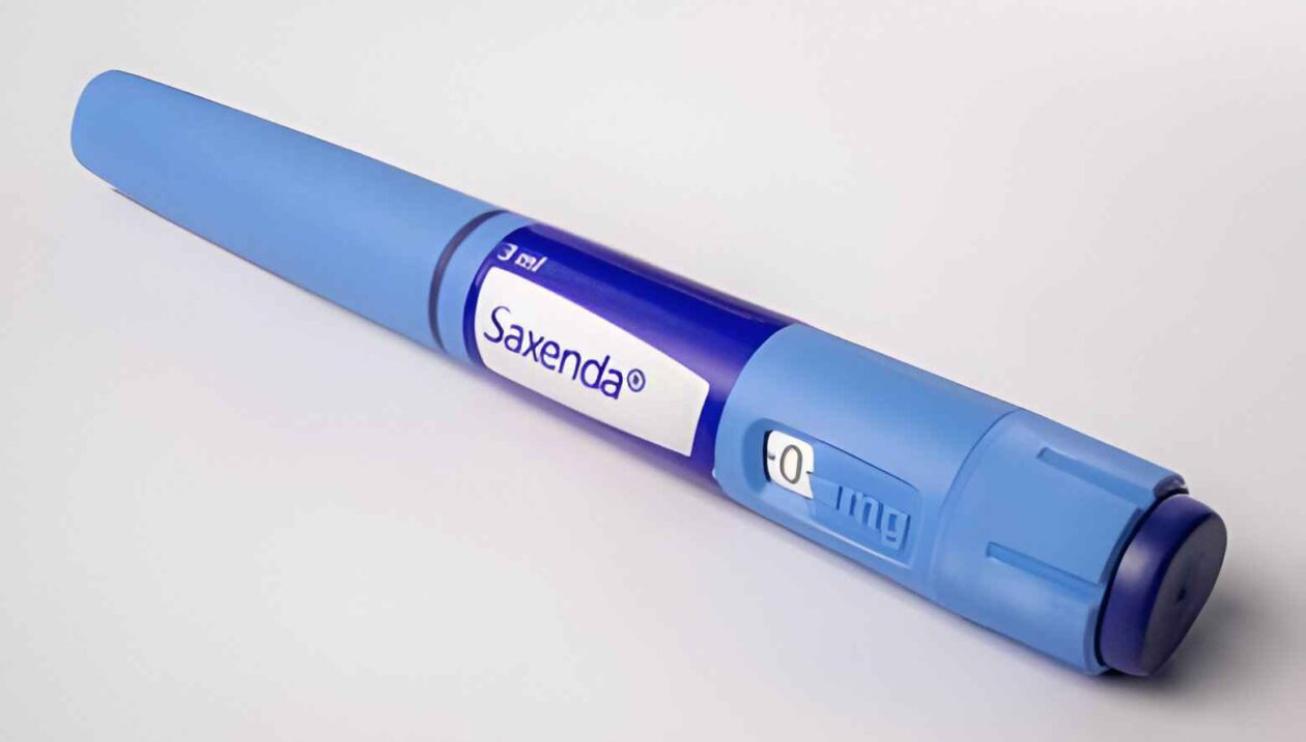Are you curious about the potential impact of Ozempic on blood pressure? We are here to delve into the fascinating relationship between this popular diabetes medication, its potential cardiovascular benefits and answer the question; Does Ozempic lower blood pressure. If you’re seeking weight loss solutions or managing diabetes, you’ve likely heard about Ozempic (semaglutide), recently approved by the Food and Drug Administration. While primarily used to treat type 2 diabetes, there’s growing interest in its potential to control blood pressure, even in those without diabetes.
Introduction
Ozempic, a glucagon-like peptide-1 (GLP-1) receptor agonist, has been making waves for its effectiveness in managing type 2 diabetes and promoting weight loss. Recent research suggests that this medication might have another trick up its sleeve: the ability to lower blood pressure. Let’s explore the science behind this exciting development and what it might mean for individuals dealing with obesity, diabetes, or both.
Recent Advances in Weight-Loss Medications and Their Impact on Blood Pressure
We’re in the midst of a revolution in weight-loss medications, with new drugs like Ozempic offering promising results. These medications work by mimicking natural hormones that regulate appetite and blood sugar, leading to weight loss and improved metabolic health in diabetes patients. But their effects might extend beyond weight management, potentially influencing blood glucose levels. Emerging evidence suggests that these medications, particularly GLP-1 receptor agonists, might also play a role in lowering blood pressure in people with type 2 diabetes.
Comparison with Other Medications
So, how does Ozempic compare to other medications used for type 2 diabetes and weight loss? Let’s take a look:
| Medication | Mechanism of Action, including the role of placebo in clinical trials | Effect on Blood Pressure (Potential) | Other Notable Effects |
|---|---|---|---|
| Ozempic (semaglutide) | GLP-1 receptor agonist | Lowering effect, particularly in lowering blood sugar, | Significant weight loss, improved blood sugar control in people with type 2 diabetes |
| Metformin | Reduces glucose production in the liver, improves insulin sensitivity | May have a small blood pressure-lowering effect | First-line treatment for type 2 diabetes |
| Wegovy (semaglutide) | GLP-1 receptor agonist (higher dose than Ozempic) | Lowering effect | Greater weight loss compared to Ozempic in overweight individuals |
| Insulin | Replaces or supplements the body’s own insulin | No direct effect on blood pressure when compared to placebo | Requires careful monitoring and dosage adjustments |
Effect of Ozempic (Semaglutide) on Blood Pressure
So, does Ozempic lower blood pressure? The answer is a resounding yes, according to a growing body of evidence;
Studies have shown that semaglutide, the active ingredient in Ozempic and Wegovy, has a positive impact on blood pressure. Research published in Springer suggests that it can lead to a significant reduction in both systolic and diastolic blood pressure. A meta-analysis of several studies published in Cardiovascular Diabetology, studying people with diabetes found that semaglutide reduced systolic blood pressure by an average of 5 mmHg and diastolic blood pressure by an average of 2.5 mmHg. This is a clinically meaningful reduction that can have a significant impact on cardiovascular health, as observed in patients with type 2 diabetes.
The exact mechanisms behind semaglutide’s blood pressure-lowering effects are still being investigated, including its role as a glucagon-like peptide-1 receptor agonist. However, several factors may contribute:
- Weight Loss: Semaglutide’s ability to promote weight loss is a major contributor to its blood pressure-lowering effects. Losing even a small amount of body weight can significantly reduce blood pressure.
- Improved Insulin Sensitivity: Semaglutide improves insulin sensitivity, which can help lower blood pressure by reducing insulin resistance, a condition associated with hypertension.
- Vascular Effects: Some studies suggest that semaglutide may have direct effects on blood vessels, leading to improved blood flow and lower blood pressure.
- Reduced Inflammation: Lower inflammation may contribute to the significant effect of semaglutide on bp. Chronic inflammation is linked to high blood pressure, and semaglutide may help reduce inflammation in the body.
While these findings are promising, more research is needed to fully understand the long-term effects of semaglutide on blood pressure and to determine its optimal use in individuals with hypertension. However, the current evidence suggests that semaglutide may be a valuable tool in the management of high blood pressure, particularly in individuals with type 2 diabetes or obesity.
This is particularly encouraging for individuals with hypertension (high blood pressure), as it could offer an additional therapeutic benefit alongside its established effects on blood sugar and weight.
A Systematic Review and Meta-Analysis of Randomized Controlled Trials (RCTs) Investigating the Effect of Semaglutide on Blood Pressure in Patients Without Diabetes
A recent systematic review and meta-analysis published in HCPLive Analyzed several randomized controlled trials (RCTs) to evaluate the impact of semaglutide on blood pressure in individuals without diabetes, showing a weighted mean difference, providing insight into the effect of semaglutide on bp. The study found a consistent and significant reduction in systolic blood pressure, with a smaller but still notable decrease in diastolic blood pressure
.
While the exact mechanisms behind semaglutide’s blood pressure-lowering effects are still being investigated, the study’s findings suggest that it could be a promising option for individuals with hypertension, even in the absence of diabetes. However, further research is needed to fully understand the long-term effects and potential risks associated with semaglutide use for blood pressure control.
Clinical Implications of the Findings
The findings from these studies have significant clinical implications for managing blood pressure, particularly in individuals with obesity. Obesity is a major risk factor for hypertension, and finding effective treatments that address both weight and blood pressure is crucial for improving overall cardiovascular health, particularly in diabetes patients.
The potential of semaglutide to lower blood pressure in individuals with obesity opens up new possibilities for treatment. It could offer a more comprehensive approach to managing this complex condition, addressing both its underlying causes and associated health risks, particularly in people with type 2 diabetes. However, further research is needed to confirm the long-term safety and efficacy of semaglutide for blood pressure control in this population.
Case Studies: Real-Life Experiences with Semaglutide
Let’s take a look at some real-world examples of how semaglutide has impacted blood pressure in individuals with obesity:
- Case Study 1: John, a 55-year-old man with a BMI of 38, struggled with both obesity and hypertension, common in people with diabetes. After starting semaglutide, he not only lost a significant amount of weight but also experienced a noticeable decrease in his blood pressure readings. His systolic blood pressure dropped from 150 mmHg to 130 mmHg, and his diastolic pressure decreased from 95 mmHg to 80 mmHg. This improvement allowed him to reduce his blood pressure medication and significantly improve his quality of life.
- Case Study 2: Sarah, a 42-year-old woman with a BMI of 32, had been diagnosed with hypertension for several years. Despite taking multiple medications, her blood pressure remained poorly controlled compared to other diabetes patients using semaglutide 2.4 mg. After starting semaglutide, she experienced a gradual but steady decline in her blood pressure, eventually reaching normal levels. She was able to discontinue one of her blood pressure medications and experienced fewer side effects.
These case studies, along with the findings from clinical trials, suggest that semaglutide may be a valuable tool in the management of hypertension in individuals with obesity.
Testimonials and Success Stories
Beyond the clinical data, hearing directly from individuals who have experienced the benefits of subcutaneous semaglutide can be incredibly inspiring. Many patients have shared their success stories, reporting not only weight loss but also improved blood pressure control, increased energy levels, and an overall sense of well-being. These testimonials highlight the potential of semaglutide to transform lives and offer hope for those struggling with obesity and its associated health risks.
Professional Insights
Medical experts are optimistic about the potential of semaglutide for blood pressure control. Dr. Harlan Krumholz, a cardiologist at Yale Medicine, believes that semaglutide could be a “game-changer” for individuals with obesity and hypertension. He emphasizes the importance of further research to optimize the use of semaglutide for this purpose and to identify the individuals who would benefit most from this treatment.
Conclusion
The research on semaglutide’s impact on blood pressure is still evolving, but the current evidence suggests that it could be a promising new strategy for controlling blood pressure in individuals with obesity. While Ozempic is not currently approved for the sole purpose of lowering blood pressure, its potential benefits in this area are significant, especially in patients with type 2 diabetes.
If you’re struggling with obesity and high blood pressure, it’s important to talk to your doctor about all your treatment options. Semaglutide may be a valuable addition to your overall health plan, helping you achieve both weight loss and blood pressure control goals, especially for overweight or obese individuals.
Remember, a healthy lifestyle, including a balanced diet, regular exercise, and stress management, is crucial for managing blood pressure and overall well-being, especially for people with type 2 diabetes. Semaglutide, in combination with these lifestyle modifications, could offer a new pathway towards better health for individuals with obesity and hypertension, being compared in semaglutide versus placebo studies.
Disclaimer: This article is for informational purposes only and should not be considered medical advice. Always consult with your healthcare provider before starting any new medication or treatment plan.
Frequently Asked Questions (FAQs)
Here we are on does ozempic lower blood pressure ; let’s tackle some frequently asked questions on that:
While not primarily designed for blood pressure control, Ozempic has been shown in some studies to lower systolic blood pressure by an average of 2.6 to 5 mmHg. The extent of blood pressure reduction can vary among individuals.
If Ozempic doesn’t significantly lower your blood pressure, consult your doctor. They might suggest adjusting your dose, incorporating lifestyle modifications like diet and exercise, or adding other blood pressure medications to your regimen
To maximize Ozempic’s effect, follow these steps:
- Take it as prescribed: Don’t skip doses or alter the dosage without consulting your doctor.
- Maintain a healthy lifestyle: Eat a balanced diet low in sodium, exercise regularly, and manage stress effectively.
- Monitor your blood pressure: Regularly check your blood pressure at home and share the results with your doctor.
Ozempic has not been shown to be harmful to the heart. In fact, studies have indicated that it may reduce the risk of major adverse cardiovascular events (MACE) in individuals with type 2 diabetes and established cardiovascular disease. However, it’s crucial to discuss any concerns with your doctor.
Heartburn is a potential side effect of Ozempic, though it’s not common. If you experience heartburn or other gastrointestinal issues while taking Ozempic, inform your doctor, as they may be able to offer solutions.
Ozempic primarily affects the pancreas, stomach, and brain. It stimulates insulin production in the pancreas, slows stomach emptying, and influences appetite centers in the brain.
Several weight loss medications are considered safe for the heart, and some even offer cardiovascular benefits. Wegovy (a higher dose of semaglutide, the active ingredient in Ozempic) has been shown to reduce the risk of MACE in individuals with obesity. Other options like Saxenda and Contrave may also be suitable depending on individual health conditions. It’s essential to discuss any concerns with your doctor, who can recommend the most appropriate medication based on your specific needs and medical history.
Here are some additional references that you may find useful:
This class has really helped me a lot with my Speaking Skills. We have a lot of opportunities to talk and share our opinion on different topics. I know this will be important when I attend an American University.
John Doe Tweet
Recent Posts
- Does Wegovy Lower Blood Sugar Like Ozempic? Some Findings in 2024
- Does Ozempic Lower Blood Sugar? The realistic Science Behind Semaglutide in 2024
- Possible side effects of ozempic for weight loss
- Timeline for weight loss on Ozempic Injection(with results!)
- Does Ozempic Lower Blood Pressure? The Proven Benefits and effect of Semaglutide on Blood pressure in 2024
In respect of this, London, an iconic city of history, culture and beauty, holds an impeccable reputation worldwide, attracting millions of tourists on an annual basis. With this in mind as we head to the Christmas period here i the Big Smoke, festivities will be anything but discreet from every street corner.
Lighten up trees, carol singers, screaming market traders, combined with the cold crisp air and mouth watering food smells, create a festive and seasonal utopia for those all around.
Embedded within this joy, are shops all around tailored for everyone. Stemming from local independent traders and large brand names across the world.
Offering up to 50% off of selected items, stores across the UK including London will draw people in there millions to devour bargains, whether it be fore themselves or somebody else .
But wait, these bargains don’t just finish there, say tuned as we will be offering discounted for our Young Learner courses in 2019.






